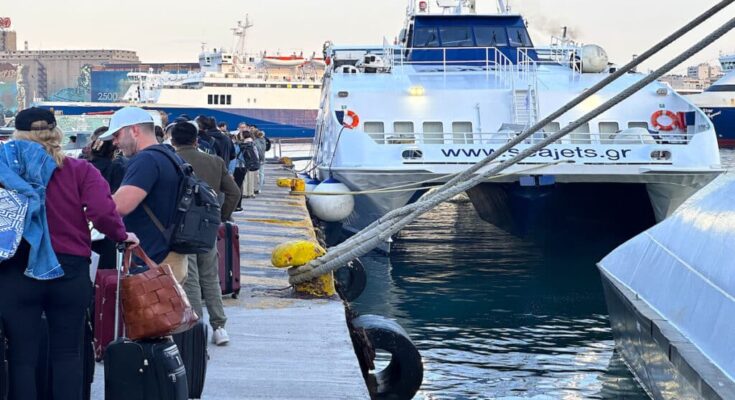As the number of tourists grows every year in Greece, the quality and safety of its ports and their infrastructure are coming under scrutiny, as is the safety of ferry boats.
Concerns have been raised by many, including captains, over the country’s infrastructure, deemed to be outdated with insufficient oversight of regulators.
As one of the most popular tourist destinations in Europe, the maritime infrastructure of Greece is crucial to keeping people safe as they travel.
It is the gateway for the transportation of thousands of passengers daily, particularly during the summer months, when the country welcomes tens of millions of tourists.
Nonetheless, as time goes by and no major investment in Greece’s ports is taking place, it is a matter of time until some of the oldest ports of the country become completely outdated. The same, obviously, applies to the fleet of the country, as the sheer number of passengers poses a great deal of pressure on the ferry boats that operate in Greece’s seas.

Greece’s captains warning on ports and infrastructure
A recent report by the Panhellenic Union of Merchant Marine Captains (PEPEN) said that many of the country’s ports are ”antiquated and some of them are dangerous.” The report also highlighted the series of challenges Greece’s captains face when they try to safely moore ships.
Among others, the report mentioned issues such as inadequate parking spaces for the thousands of cars that reach the ports.
Additionally, Greece’s captains noted that some Greek ports have started losing depth over time as no significant restoration work has taken place in years.
If we take into account the uncontrolled mooring of large yachts as well, we can see how things are not so well when it comes to sea travel in Greece.
Other issues are also evident in many places, particularly smaller islands.
Passenger waiting areas, for example, are often inadequate or even non-existent. This reality leaves passengers exposed to the scorching heat in the summer or even heavy rain and winds in the winter for extended periods until their embarkation.
The situation is exacerbated by a shortage of port authority personnel, a problem that is widespread in many Civil service jobs in Greece.
The current staff are stretched thin due to reassignment to border duties, something that makes the situation even worse.
Specific ports, such as that of Parikia on the popular holiday destination island of Paros, face unique challenges due to the non-regulated traffic of tourist and pleasure boats. This situation poses risks of accidents when larger vessels, such as ferry boats, try to reach the area.
Other islands, like Kasos and Kea, suffer from inadequate infrastructure, as these islands were not used to large numbers of visitors in the past.
In response to the ever-growing issues of these ports, the Greek government initiated recently a major investment program to improve conditions in over 50 ports across the country. The initial budget will reach €324 million. However, critics argue that these funds are simply not enough to address the pressing issues the country’s ports face.



